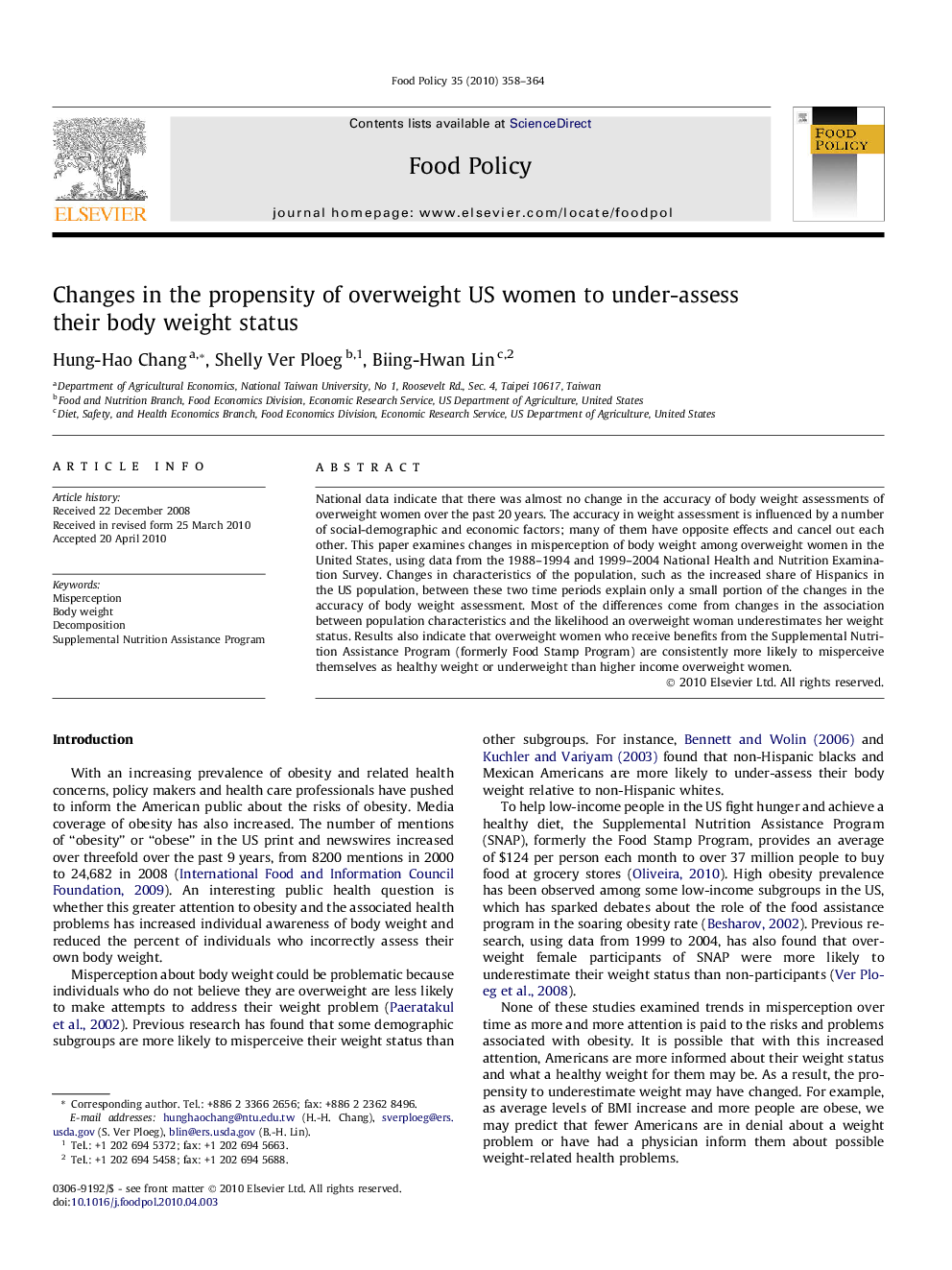| Article ID | Journal | Published Year | Pages | File Type |
|---|---|---|---|---|
| 5070902 | Food Policy | 2010 | 7 Pages |
Abstract
National data indicate that there was almost no change in the accuracy of body weight assessments of overweight women over the past 20Â years. The accuracy in weight assessment is influenced by a number of social-demographic and economic factors; many of them have opposite effects and cancel out each other. This paper examines changes in misperception of body weight among overweight women in the United States, using data from the 1988-1994 and 1999-2004 National Health and Nutrition Examination Survey. Changes in characteristics of the population, such as the increased share of Hispanics in the US population, between these two time periods explain only a small portion of the changes in the accuracy of body weight assessment. Most of the differences come from changes in the association between population characteristics and the likelihood an overweight woman underestimates her weight status. Results also indicate that overweight women who receive benefits from the Supplemental Nutrition Assistance Program (formerly Food Stamp Program) are consistently more likely to misperceive themselves as healthy weight or underweight than higher income overweight women.
Related Topics
Life Sciences
Agricultural and Biological Sciences
Food Science
Authors
Hung-Hao Chang, Shelly Ver Ploeg, Biing-Hwan Lin,
